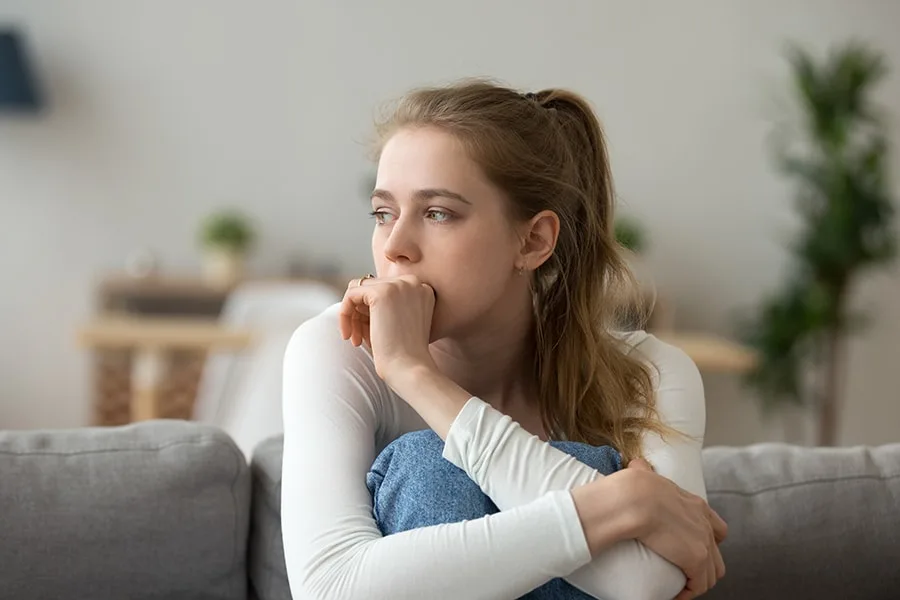Anxiety has become a common experience in our fast-paced world, affecting millions of people daily. While traditional treatments like medication and therapy are effective for many, there is a growing interest in natural, holistic approaches to managing anxiety. These methods often focus on balancing the mind, body, and spirit, fostering overall well-being. Here, we explore several effective natural strategies to help reduce anxiety.
Understanding Anxiety
Before diving into holistic approaches, it’s essential to understand anxiety itself. It’s a natural response to stress, characterized by feelings of worry, fear, or unease. While some anxiety can be beneficial (like the nervousness before a big presentation), chronic anxiety can be debilitating. It can manifest through physical symptoms such as heart palpitations, sweating, or muscle tension, as well as emotional symptoms like irritability and restlessness.
1. Mindfulness and Meditation
One of the most effective holistic approaches to managing anxiety is mindfulness meditation. This practice encourages individuals to focus on the present moment without judgment. Studies have shown that mindfulness can significantly reduce anxiety levels by promoting relaxation and emotional regulation.
How to Practice:
- Start Small: Begin with just five minutes a day, gradually increasing the duration as you become more comfortable.
- Find Your Space: Choose a quiet, comfortable place to sit or lie down.
- Focus on Breathing: Pay attention to your breath, noticing the sensations of inhaling and exhaling.
Benefits:
Regular mindfulness practice can lead to lower stress levels, improved focus, and greater emotional resilience.
2. Physical Activity
Exercise is a powerful antidote to anxiety. Engaging in physical activity releases endorphins, the body’s natural mood lifters. Additionally, exercise can reduce levels of the stress hormone cortisol, helping to mitigate feelings of anxiety.
Types of Exercise:
- Aerobic Exercise: Activities like running, swimming, or cycling can significantly improve mood and reduce anxiety.
- Yoga: Combining physical postures with breath control and meditation, yoga has been shown to enhance mental health and reduce anxiety symptoms.
- Walking in Nature: Nature walks not only provide physical benefits but also help reconnect you with your environment, promoting a sense of calm.
Recommendations:
Aim for at least 30 minutes of moderate exercise most days of the week. Find activities that you enjoy to make it easier to stick to a routine.
3. Nutrition
The food we consume can have a profound impact on our mental health. A well-balanced diet rich in nutrients can help regulate mood and reduce anxiety symptoms.
Key Nutrients:
- Omega-3 Fatty Acids: Found in fish, flaxseeds, and walnuts, omega-3s have been linked to reduced anxiety levels.
- Magnesium: This mineral helps regulate neurotransmitters and can be found in leafy greens, nuts, and whole grains.
- B Vitamins: B6, B12, and folate play essential roles in brain health. Incorporate sources like eggs, beans, and leafy vegetables.
Lifestyle Tip:
Consider keeping a food diary to identify any patterns between your diet and anxiety levels. Whole, unprocessed foods tend to provide the nutrients necessary for optimal mental health.
4. Herbal Remedies
Various herbs have been traditionally used to alleviate anxiety. While research is ongoing, some have shown promising results in clinical studies.
Popular Herbs:
- Chamomile: Known for its calming effects, chamomile tea can help reduce anxiety and promote relaxation.
- Lavender: Aromatherapy with lavender oil can have soothing effects and has been shown to decrease anxiety levels.
- Valerian Root: Often used for insomnia, valerian root may also help reduce anxiety symptoms.
Important Note:
Always consult with a healthcare provider before starting any herbal supplements, especially if you’re already on medication.
5. Deep Breathing Techniques
Deep breathing exercises are simple yet effective tools for managing anxiety. By focusing on your breath, you can activate your body’s relaxation response, reducing stress and anxiety levels.
Simple Techniques:
- Diaphragmatic Breathing: Inhale deeply through your nose, allowing your abdomen to expand, and exhale slowly through your mouth. Repeat several times.
- 4-7-8 Breathing: Inhale for a count of four, hold for seven, and exhale for eight. This technique can help calm the nervous system.
Practice Tip:
Incorporate deep breathing exercises into your daily routine, particularly during moments of heightened anxiety or stress.
6. Social Support
Building a strong social network can significantly impact mental health. Connection with friends and family provides emotional support, helping to buffer against anxiety.
Ways to Foster Connections:
- Reach Out: Make a habit of checking in with loved ones, whether through calls, texts, or in-person visits.
- Join Groups: Participate in community activities or support groups that align with your interests or challenges.
- Volunteer: Helping others can create a sense of purpose and strengthen social bonds.
Benefits:
A supportive community can provide a sense of belonging and reduce feelings of isolation that often accompany anxiety.
7. Sleep Hygiene
Quality sleep is crucial for mental health. Poor sleep can exacerbate anxiety symptoms, creating a vicious cycle. Establishing healthy sleep habits can significantly improve overall well-being.
Tips for Better Sleep:
- Create a Sleep Schedule: Go to bed and wake up at the same time each day to regulate your body’s internal clock.
- Limit Screen Time: Reduce exposure to screens at least an hour before bed to promote better sleep quality.
- Create a Relaxing Environment: Make your bedroom a calming space by keeping it dark, cool, and quiet.
Summary
Anxiety can be overwhelming, but there are many natural, holistic approaches to help manage it effectively. By incorporating mindfulness practices, regular physical activity, nutritious foods, herbal remedies, breathing exercises, social support, and good sleep hygiene, individuals can create a comprehensive plan to reduce anxiety. Remember, it’s essential to listen to your body and mind and find what works best for you. If anxiety persists, seeking professional help is a vital step toward recovery.
Cortina Premium Silicon Floor Mat, Bath Mat, Doormat, Bathroom Carpet, Cushion Mat Super Absorbent Soft Carpet, Quick Dry Dirt Barrier for Home, Office, (60x40), Blue
₹129.00 (as of 21 October, 2024 18:22 GMT +05:30 - More infoProduct prices and availability are accurate as of the date/time indicated and are subject to change. Any price and availability information displayed on [relevant Amazon Site(s), as applicable] at the time of purchase will apply to the purchase of this product.)TEKCOOL 35 Feet Long LED Power Pixel Serial String Light, 360 Degree Light in Bulb | Copper Led Pixel String Light for Home Decoration,Diwali,Christmas(Multi) Pack of 1
₹119.00 (as of 21 October, 2024 18:22 GMT +05:30 - More infoProduct prices and availability are accurate as of the date/time indicated and are subject to change. Any price and availability information displayed on [relevant Amazon Site(s), as applicable] at the time of purchase will apply to the purchase of this product.)The Purple Tree Gold Fabric Autumn Maple Leaf Decorative Light (3 Mtr,30 Led) Unique Style Light,Christmas Light,Romantic Light Decoration,3 Meters Plug in Light
₹199.00 (as of 21 October, 2024 18:22 GMT +05:30 - More infoProduct prices and availability are accurate as of the date/time indicated and are subject to change. Any price and availability information displayed on [relevant Amazon Site(s), as applicable] at the time of purchase will apply to the purchase of this product.)HOMEKART 220 GSM Solid Plain Reversible Summer Microfiber AC Comforter/Duvet| All Season Single Size 3 Layered Quilted Blanket for Single Bed (220 cm x 152 cm, Maroon and Grey)
(as of 21 October, 2024 18:22 GMT +05:30 - More infoProduct prices and availability are accurate as of the date/time indicated and are subject to change. Any price and availability information displayed on [relevant Amazon Site(s), as applicable] at the time of purchase will apply to the purchase of this product.)One94Store 36 Feet Long LED Power Pixel Serial String Light, 360 Degree LED Bulb Light Series Copper Led Pixel String Light for Home Diwali, Christmas Decoration (Multicolor, Pack of 1)
₹99.00 (as of 21 October, 2024 18:22 GMT +05:30 - More infoProduct prices and availability are accurate as of the date/time indicated and are subject to change. Any price and availability information displayed on [relevant Amazon Site(s), as applicable] at the time of purchase will apply to the purchase of this product.)Discover more from The General Post
Subscribe to get the latest posts sent to your email.





